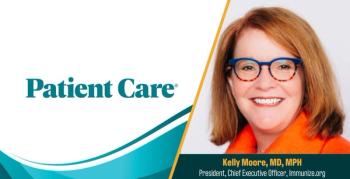
|Slideshows|May 6, 2020
Coping with COVID-19: Tips for Healthcare Providers and Patients
Author(s)Veronica Hackethal, MD
The impact of the COVID-19 pandemic is deeply affecting the mental health of patients and health care workers alike. Scroll through this quick slideshow for a range of coping strategies.
Advertisement
Newsletter
Enhance your clinical practice with the Patient Care newsletter, offering the latest evidence-based guidelines, diagnostic insights, and treatment strategies for primary care physicians.
Advertisement
Latest CME
Advertisement
Advertisement
Trending on Patient Care Online
1
First Oral Film Treatment for Erectile Dysfunction in Men Gains FDA Approval
2
Long-Term Data Support Sustained Bimekizumab Response in Hidradenitis Suppurativa
3
Weekly Dose Podcast: New Obesity Data, Insulin Guidance, and Mental Health Screening
4
Topline Phase 2 Data Show Roflumilast Cream Improves Atopic Dermatitis in Infants as Young as 3 Months
5
































































































































